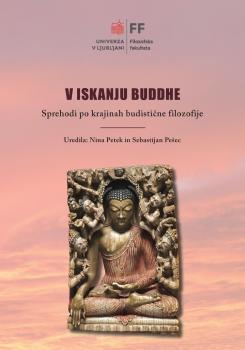Buddhism and Free Will
Synopsis
The Buddha did not use the term free will in his teachings, so the question arises whether it makes sense to talk about the problem of free will, as known in Western philosophy, within the framework of the Buddhist tradition. In addition, Buddhism focuses primarily on the practical aspect of life, on what contributes to liberation from suffering and leads to enlightenment. Important here is the soteriological moment, not the theoretical, metaphysical discussion. In the article, I try to show that despite this the teachings of the Buddhist schools offer some ground for discussions of free will. The Buddha rejected inevitability so it seems we could eliminate hard determinism and fatalism. However, the question arises whether we can talk about autonomy or free will. Moreover, how should we understand that we have a certain degree of choice or control over our actions (which would correspond to at least a weak conception of free will) at the conventional level, while accepting the doctrine of non-self, which denies that there is an autonomous agent that causes actions?
Downloads
Pages
Published
License

This work is licensed under a Creative Commons Attribution-ShareAlike 4.0 International License.


